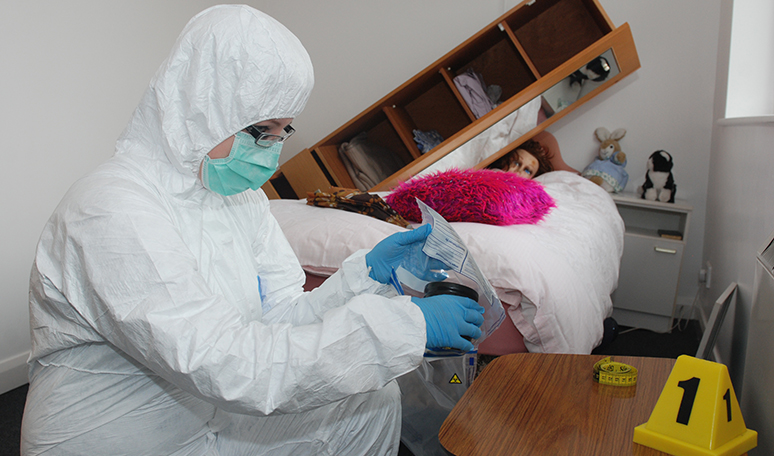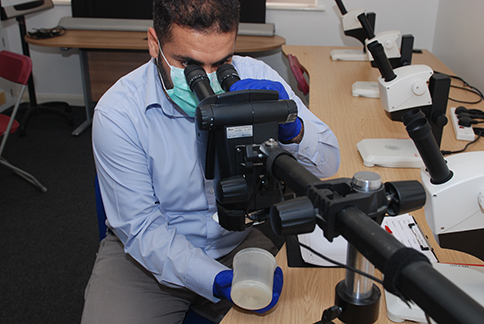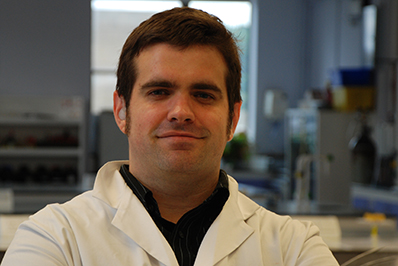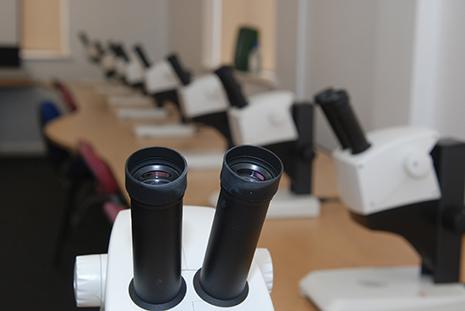Forensic Science courses in UK top ten of 34 providers

Wed, 21 Sep 2016 10:20:00 BST
High employability rates among forensic science graduates are a source of pride for the course leaders
 THERE is mounting evidence that the University of Huddersfield is one of the best places in the UK to study forensic science. In addition to in-depth knowledge of DNA profiling and the chance to study blood stain pattern analysis, amongst a wide range of other disciplines, students also learn how to stand up in court and defend their evidence. This is a crucial factor in the success of degree courses.
THERE is mounting evidence that the University of Huddersfield is one of the best places in the UK to study forensic science. In addition to in-depth knowledge of DNA profiling and the chance to study blood stain pattern analysis, amongst a wide range of other disciplines, students also learn how to stand up in court and defend their evidence. This is a crucial factor in the success of degree courses.
The newly-released Complete University Guide includes subject-by-subject rankings and in the debut league table for forensic science Huddersfield is established at seventh place out of 34 institutions.
Dr Graham Williams, who is the University’s forensic science lead in Applied Sciences, is delighted by the good showing for a subject area that has become increasingly popular at Huddersfield in recent years.
“I knew we would be high in the rankings, but I didn’t realise we would be in the top ten,” he said. “This is the fruit of efforts we have made over the past 10 years at improving our provision, emphasising the relevance of the forensic sciences and boosting the employability of graduates.”
There are approximately 150 students at various stages of the suite of forensic science BSc, MSci and postgraduate MSc courses available at Huddersfield. These include Chemistry with Forensic Science and Forensic and Analytical Science.
Sector-leading facilities include a DNA profiling laboratory and a crime scene facility with a briefing room, a laboratory and a bloodstain pattern analysis room, where blood can be distributed on to the walls to simulate a brutal crime scene.
 “But part of being a forensic scientist is that you have to give evidence in court and we provide training in that aspect of it,” said Dr Williams (pictured right), who – in addition to his areas of research expertise – has considerable experience as a court-going expert witness. The University of Huddersfield’s own mock courtroom – in the Business School – is used to simulate trial conditions.
“But part of being a forensic scientist is that you have to give evidence in court and we provide training in that aspect of it,” said Dr Williams (pictured right), who – in addition to his areas of research expertise – has considerable experience as a court-going expert witness. The University of Huddersfield’s own mock courtroom – in the Business School – is used to simulate trial conditions.
“Most forensic science courses will have an element of court skills but I think we probably place more emphasis on it,” continued Dr Williams. In addition to chemistry, biology and forensic science modules, there is also a module named called forensic science and the law.
“Students learn about criminal law in the first term and one of their assignments is to actually go to a court and produce a report on how forensic science could have helped the case,” explained Dr Williams.
“They get to see how courts work and they respond well. We have had some students who have gone back to court, if they have a spare afternoon, and we have had some forensic science students who have gone on to a graduate law degree.”
 High employability
High employability
High employability rates among forensic science graduates are a source of pride for the course leaders. Students are given a frank view of the competitive nature of the jobs market in forensic science, but are provided with subject-specific careers advice which can give them an edge over other job applicants.
The students are also equipped with many transferable skills, including scientific knowledge that equips them for quality control work in fields such as pharmaceuticals. The mock courtroom exercises at Huddersfield also equip the students with the confidence to stand up in front of people and present to them.
“The typical route to becoming a forensic scientist is that you get a degree and then take a job in a laboratory for a couple of years. It is unusual for a forensic science provider to recruit direct from university,” said Dr Williams.
“They want to see some experience in the lab first and because we have a placement option as part our degrees, students get one years’ lab experience anyway and that is one aspect that makes them more employable.”







